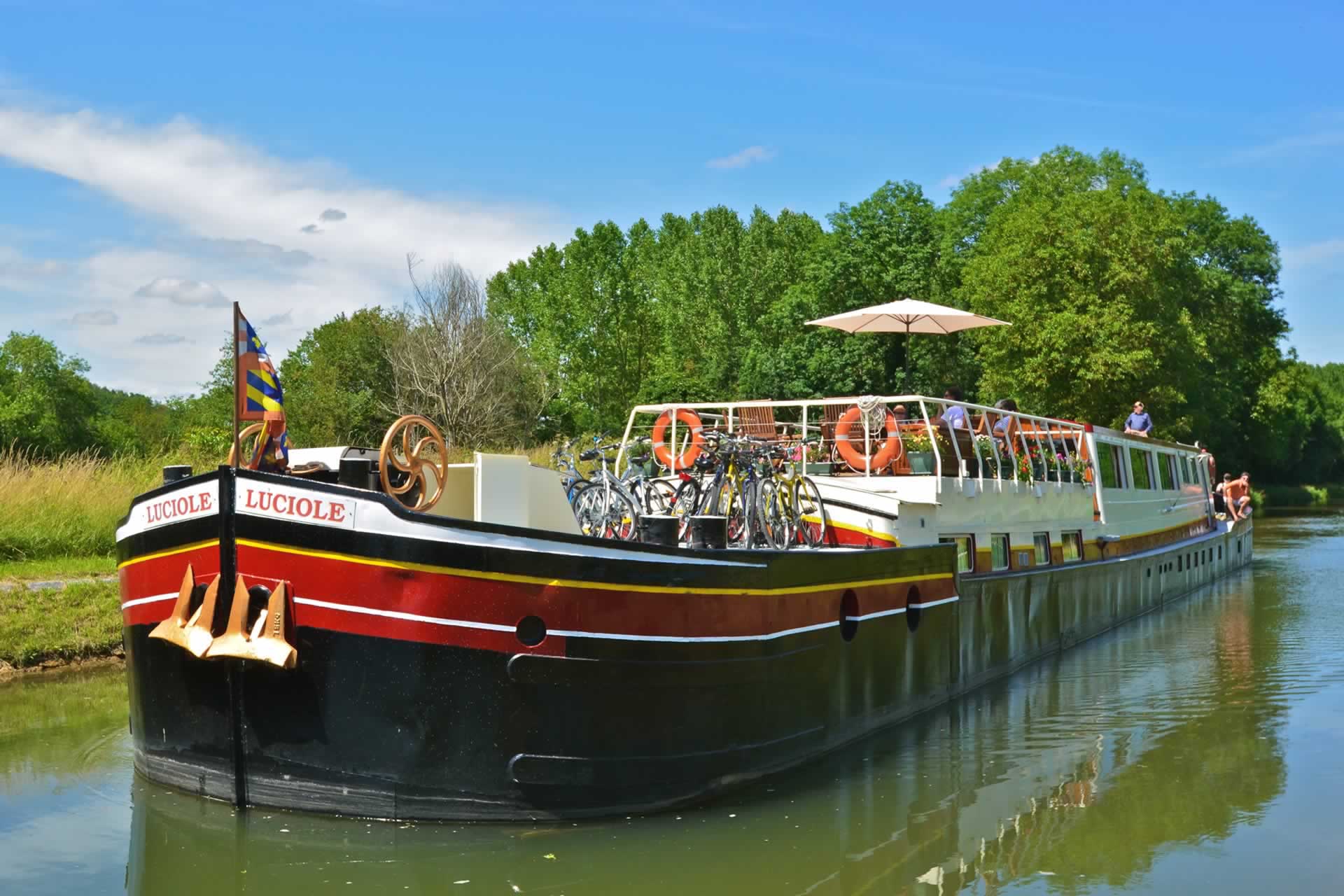- Previous
- |
- All articles
- |
- Next
Biking canals
Does anyone go lock-wheeling nowadays? Working ahead of a vessel on a bike? In the days of freight on the narrow canals a common enough sight was a figure with jacket tails flapping, pedals firmly into insteps, coming to prepare the way. Time was of the essence; locks were worked through briskly, with no delay. The process entailed, incidentally, not bothering to close the gates again after a boat had passed, on the perfectly reasonable grounds that the next one along could be heading in the opposite direction. A practice to be revived, perhaps? More on that some other time; meanwhile, on with the bikes.
Today, on the English canals, bicycles are increasingly seen as a hazard to other users, with the risk of wanderers on the path being swept aside by some buffoon clad in Lycra. The Regent’s Canal in London is amongst those to be suffering, with protests by indignant toddler’s mums (it’s the mums who are indignant, of course, the toddlers only becoming so when it’s far too late).
If it’s any consolation the same thing happens in Burgundy, where towpaths have been re-surfaced to attract the cycling world in all its French abundance. There have been several incidents of pedestrians finding their next waking moment on a stretcher with a medic in attendance. You have to be careful.
But cycling itself is what many of our clients on the Luciole like to do. “Gee, I haven’t been on one of these in forty years” is a common if not entirely reassuring remark; and off they set. Discussions as people book their cruises often concern our bikes, their nature and quantity. Twice this year a group of 14 has asked to have 14 bicycles provided, though experience shows they are unlikely to all go pedaling simultaneously. On Luciole, we generally carry eight bikes, of sound rather than sophisticated construction, with easily adjustable seats and simple gearing. More can be hired by us if needed, while the crew is well versed in keeping those we have in workable trim.
For our clients from the USA and, increasingly this year, Australia, canalling and cycling seem strongly connected. As the barge moves along, folk precede her along the towpath, making diversions sometimes, though rarely far away. Not everyone goes biking, of course, but we’d have a hard time of it were these machines not provided. And, happily, the kind of cycling we provide does not seem anti-social. While towpaths beside the rivers in France have largely disappeared, those by the nation’s canals, already in reasonable nick, are being given this further promotion, and in some cases covered in tarmac. It is a doubtful improvement, though mercifully on our route the Tour de France emulators diminish in frequency the farther up the valley we go. The cyclists we see there are more often of the long-distance-with-panniers fraternity, a better balanced group, likelier to stop and have a chat.
Around Dijon, however, it is another matter, and I was practically flattened when last near the city myself, by some (unapologetic) character bent on setting a record. The smoothing of the path by the Canal de Bourgogne, however well intentioned, has been a terrible mistake. There are sections beside the Nivernais, on the other hand, certainly in the higher reaches, that, though wide enough to take the lock keeper’s van, are just a bit raggedy. They are perfectly serviceable as towpaths, indeed, a good deal better, usually, than their English equivalents, and perfectly ride-able. Our passengers have no great trouble with them, and remain gratified by the experience; but they do not attract the speedsters. The differences are modest: the odd shallow pothole, a few stones rolling about. That is all it seems to take.
Is this not the answer? To keep the towpaths, to some degree, rough? The local authority, where I live in England, by the Macclesfield Canal, has not been faced with this yet. To quote from a circular “…bids have been submitted for substantial grants to upgrade a length of towpath to a very high standard.” A visit to the Town Hall suggests itself, before it becomes too late.
- Previous
- |
- All articles
- |
- Next
Hotel barge Luciole
Cruising since 1976
Phone: 00 44 1625 576880
From USA: 011 44 1625 576880
Whatsapp: 00 33 6 09 92 20 76
Email: info@bargeluciole.com
23 Adlington Road, Bollington
SK10 5JT England
1-2 Quai de la Republique, Auxerre
89000 France
© Hotel Barge Luciole 2026



